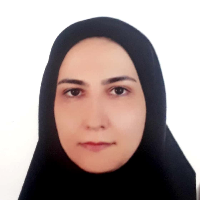The meaning of the word "al-Dhanak" based on semantic adjacency and semantic substitution relations and its reflection in Persian and English translations
Single-use words in the Holy Qur'an are words that are used only once in the text. Because these words do not appear in other verses or similar contexts, their translation is more challenging than other words in the Qur'an. The word "Zanq" is one such example, appearing in verse 124 of Surah Taha as an adjective for livelihood. Translators have used various equivalents for this word, which either stray far from its semantically diverse senses noted in interpretations or are translated carelessly. This study aims to examine some Persian and English translations and how an equivalent was chosen for this verse. By using a descriptive semantic analysis, the study seeks to determine what "Zanq" means and evaluate the success of the Persian and English translations of the Holy Qur'an. The results indicate that Persian translators have employed both literal and interpretive translations, while English translators have predominantly opted for literal translations. However, neither approach has successfully conveyed the meaning derived from the semantic analysis of the word.Key words: Zanq livelihood, Takamad, semantics of Quranic words, types of Quran translation, Persian and English translators of Quran
-
جستاری در اعتبار سنجی زیارت امین الله
محسن کبیری راد*، سید محسن موسوی،
نشریه دعاپژوهی، پاییز و زمستان 1403 -
An Analysis of Commentators' Views on the Deficiency of Women's Reasoning in Relation to Verse 18 of Surah Al-Zukhruf
*, Habibullah Halimi Jelodar
Journal of Quranic Science Studies, -
استفاده از زبان مشترک در فرایند اقناع و تربیت مخاطب از منظر آیات قرآن کریم
*، حسن یعقوبی
نشریه مطالعات فهم قرآن، پاییز و زمستان 1403 -
In search of the application of comprehensiveness to Ibn Mahbub's Mashikhah
Seyyed Mohsen Musavi *,
Hadith Sciences,



